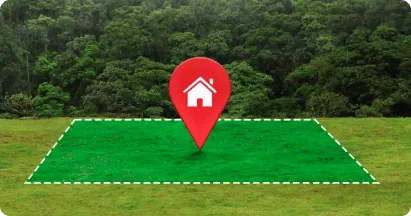Disclaimer: We sell new metal buildings only. No repairs (for buildings installed by another carport company), add-ons, or concrete work provided.
When you're thinking about adding a metal building to your property, it's easy to get caught up in the numbers. But choosing between a 20×30 and a 20×40 isn't just about square footage. It's about how you live, how you work, and what you need your space to do.
Do you need room to park a couple of vehicles and store tools? Or are you running a small business, working on weekend projects, or dreaming of a hobby space that doesn't eat up your garage? Whatever your vision, the right size building can make all the difference—not just today, but years down the road.
That extra 200 square feet may not sound massive on paper, but in practice, it's the difference between "it fits" and "it fits comfortably."" Especially if you're working, moving around, or dividing the space for multiple uses.
A 20x30 building is compact, efficient, and surprisingly capable. It's an apt choice for people who want a space that supports their needs without overwhelming their property—or their budget.

You can easily park two cars or a truck and a small trailer in this size, with enough room left along the walls for shelves, tools, or yard equipment.
Want to reclaim your home garage and still have room to tinker with a project car? A 20×30 gives you the space to do that without going overboard.

If you're a woodworker, a weekend mechanic, or run a home-based business like crafting or small-scale fabrication, this size lets you build a functional work zone without stretching too far.
Just keep in mind: you'll need to be efficient with layout. Once the main workspace is set up, there may not be much extra room for vehicle storage or a separate office unless you get creative with partitions.

If you just need a dedicated space for holiday decorations, yard tools, or overflow from the house, the 600 sq. ft. is more than enough to keep things clean, dry, and organized.
The 20×40 layout gives you 800 sq. ft., and that additional 10 feet in length gives your layout breathing room. Suddenly, multi-use setups become a lot more realistic.
With this footprint, it becomes much easier to combine purposes. You could park a vehicle in one half and set up a full workshop or small office in the other. You're not constantly moving things around just to get from one end to the other.
If you're storing large equipment like mowers, trailers, or ATVs, or you’re running a small operation (contracting, repairs, reselling, etc.), that extra length makes it easier to set up designated zones:
And if you're running a retail or inventory-based business, 800 sq. ft. gives you enough room to separate customer space from your working/storage area.
Let's be honest—cramped spaces aren't fun to work in. The 20x40 gives you better flow, more comfortable walkways, and flexibility for upgrades like:
That depends entirely on how you plan to use it. Here's a quick way to think about it:
| Use Case | 20×30 | 20×40 |
| Two-car garage | Fits snugly | Fits with more room to walk |
| Workshop + vehicle | Tight | Comfortable |
| Small office or side hustle | Limited options | Customizable |
| Agricultural gear | Small gear, trailers | Bigger gear, ATV + feed |
| Home gym, art studio, hobby space | Minimal layout | Room to spread out |
| Agricultural gear | Small gear, trailers | Bigger gear, ATV + feed |
| Flexibility for future | Limited | Easier to adapt later |
Yes, the 20×40 will cost more up front—but here’s what people often overlook:
If there's even a slight chance your needs will grow—or you're the kind of person who's always tinkering with new ideas—the 20x40 is the safer bet in the long run.
No matter which size you choose, you’re not locked into a cookie-cutter layout. Both 20×30 and 20×40 buildings can be personalized with:
And whether you want a sleek vertical roof or a more traditional look, you’ve got options that work with your climate and your taste.
Before installation, you'll want to:



At the end of the day, both the 20x30 and 20x40 buildings are solid investments. It just comes down to what you want your space to do for you.
The most common regret among metal building buyers? Going too small.
If you're on the fence, it's almost always better to size up—especially when you consider the long-term flexibility and added value.